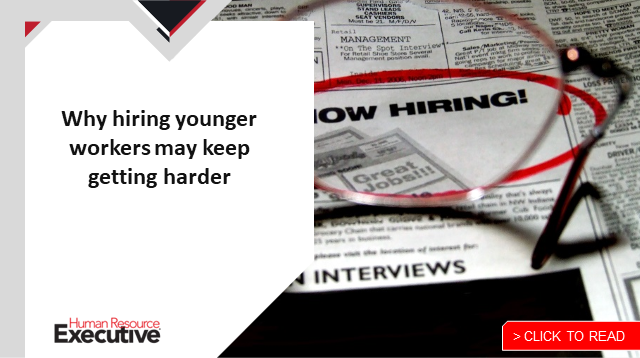The economy is cooling off. Inflation is at a 40-year high. And the Federal Reserve recently put in place the highest interest rate hike in nearly three decades.
Add it up, and some analysts believe that the Great Resignation’s hiring binge could be transforming into corporate job-shedding in the near future. For instance, companies such as Compass, Redfin, Tesla and Warner Bros. Discovery have announced layoffs in recent weeks. According to Bloomberg, the tech, cryptocurrency and real estate sectors are being particularly hard hit, with an estimated 37,000 workers laid off in those industries since May.
A pair of Korn Ferry executives believe we could be seeing many more companies following suit in the coming months. And the potential for layoffs, they say, means savvy HR leaders should be looking now at how they would modify their workforce if their business softens.
Getting ahead of the curve on skills
Dan Kaplan, senior client partner, CHRO Practice, says there are two critical first steps for CHROs who may find themselves in that scenario. One is to identify top performers; the other related move is to determine the organization’s most essential roles.
 “Both involve finding out which employees have the leadership traits the firm needs, which have high levels of learning agility, which are most gifted at problem-solving and which possess the technical or market skills for where the company is going rather than where the company has been in the past,” Kaplan says.
“Both involve finding out which employees have the leadership traits the firm needs, which have high levels of learning agility, which are most gifted at problem-solving and which possess the technical or market skills for where the company is going rather than where the company has been in the past,” Kaplan says.
He explains that many employers tend to reduce their workforces arbitrarily, by “peanut butter-spreading” reductions across functions or geographies or even business units. He says these firms can wind up laying off just as many top-performing employees as they do average performers or underachievers.
The best executives, instead, are being “strategic and ahead of the curve, asking themselves if they really know who their top-performing employees are, where they are located and which have the future skills that their company requires to thrive coming out of the recession,” says Bradford Frank, senior client partner in Korn Ferry’s Technology Practice. He adds that employers could also leave themselves short of roles that are essential to their future business if they’re not thinking strategically.
“It’s why reskilling should be a part of any restructuring plan,” Frank adds, citing the example of a Korn Ferry client, which, having recognized that its call center business might be impacted by a softening economy, started cross-training employees to assume other roles in the future.
Communicating well—and with empathy
For those organizations that do need to reduce headcount, the decision and the process won’t be easy for business and HR leaders, says Moses Balian, HR consultant at Justworks. Just as challenging is talking to the workforce about such moves.
“Unfortunately, nothing is ever certain for even the best-performing companies,” he says. “An organizational redesign is going to look wildly different at every company. But whether it’s a small or mid-size business, communication will be a key factor in how employees view the company’s reputation.”
 Balian explains that under-communicating on the matter will only exacerbate employee concerns; a “muted or aloof” approach, he says, takes the control squarely out of the hands of the business and throws it to the winds of “uninformed speculation.”
Balian explains that under-communicating on the matter will only exacerbate employee concerns; a “muted or aloof” approach, he says, takes the control squarely out of the hands of the business and throws it to the winds of “uninformed speculation.”
With that, he says, managers should be trained on what details to share on potential reductions and how to set the tone in order to move forward productively.
“It may seem obvious, but don’t forget to close your communications on the subject with an invitation like this: ‘Any questions? Please feel free to approach HR or your manager.’ Allowing employees to be heard and recognized goes a long way toward boosting employee morale,” Balian says.
Empathy needs to be at the heart of any layoff, which is the worst part of being a people manager—even when parting ways with the employee is justified—adds Will Foussier, co-founder and CEO at leadership development firm AceUp, a provider of “human-centered” leadership development solutions.
“Whether the reason is purely a cost-cutting measure or the worker was not performing well or responding to feedback, the situation should be treated delicately,” Foussier says. He offers five important considerations should layoffs be required:
Lead with humanity: Be human, show support, be respectful, empathetic and compassionate. This is hard for leaders, but even harder for their teams, he says. Create an environment where current and laid-off employees maintain their dignity and feel fully supported by you and your organization—especially during what could be one of the most stressful moments of their careers and lives.
Develop your plan: Carefully plan out a thoughtful, human-centric approach, including the messaging you want to convey. This can include where, when and how the message will be delivered; remember to keep the affected employees’ feelings and perspectives top of mind, Foussier says. Just as important is a thoughtful plan for how you will communicate to your entire organization that a colleague or colleagues are being layoff.
 Seek coaching: Tap into the experience and knowledge of your fellow leaders to coach you through the process. The collective wisdom of the crowd will result in a strong, well-thought-through communication plan. Seek 1:1 professional coaching to help guide you through the preparation and ensure your tone and delivery are authentic and human while also direct.
Seek coaching: Tap into the experience and knowledge of your fellow leaders to coach you through the process. The collective wisdom of the crowd will result in a strong, well-thought-through communication plan. Seek 1:1 professional coaching to help guide you through the preparation and ensure your tone and delivery are authentic and human while also direct.
Prepare in advance: Rehearse your message, write a script, practice and think through what your answers will be to any questions employees may ask. Communicating a clear message throughout the process with the right level of detail is critical, Foussier says.
Show support: Ensure that your organization is set up to support the individuals affected through their transition. Communicate what support will be available and how to access it.
A human-centric approach can have resounding business impacts, says Korn Ferry’s Kaplan, who notes that some companies that recently rescinded job offers in light of the economy are now helping those candidates find employment at other organizations.
“It’s important to avoid tarnishing your brand in the eyes of both candidates and employees,” he says. “When you are making tough calls, do it with an eye toward the future.”
The post Worried about layoffs? Here’s what HR should (and shouldn’t) do appeared first on HR Executive.